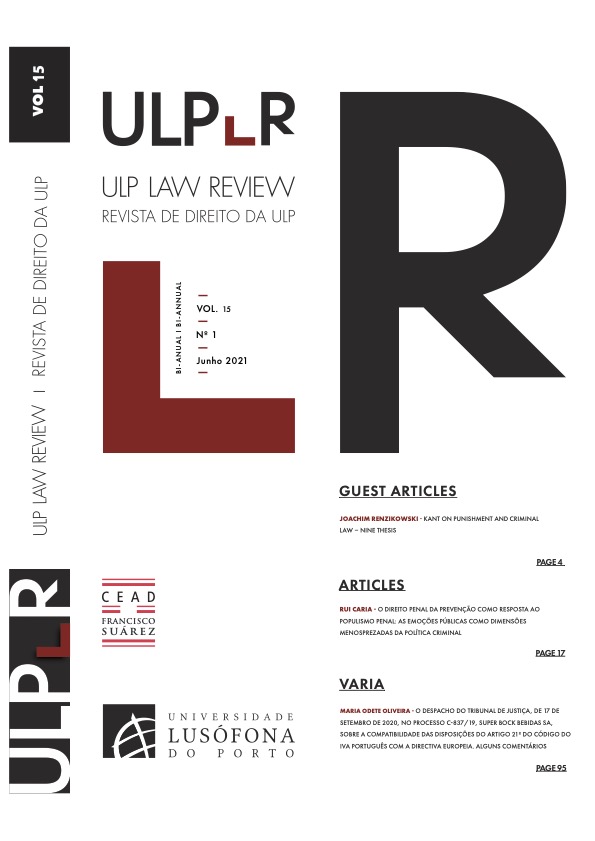The criminal law of prevention as a response to penal populism: public emotions as overlooked dimensions of criminal policy
Abstract
The rise of penal populism has become alarming due to the increase of its supporters and the growing severity of the punishments it demands to turn into law. It takes advantage of political emotions to achieve its goals, channeling fear and anger into proposals for legislations. Today’s criminal policy is guided by the goal of crime prevention, finding strength in the principles of the Constitution and the Democratic State of Law. However, it does not seem to concern itself with public emotion. Giving up the task of channeling public emotion into public policy to populist actors can be regarded as a great danger to Democracy. Our study’s aim is to reflect on the importance of public emotion in a preventive criminal policy as an answer to penal populism. With this in mind, we shall analyze how each one of these frames treats public emotions, highlighting how preventive criminal policy can use positive emotions to strengthen its guiding principles and honor them through legislation. The topic of public emotions has been growing among development policy studies; however, it has not been fully developed in criminal law. In this way, we see our study as one of the first contributions to the development of this view. These can have an influence upon the way we construct penal-dogmatic categories such as guilt, as well as help humanize and individualize sentencing.
Downloads
Direitos de Autor (c) 2024 - Revista de direito da ULP

This work is licensed under a Creative Commons Attribution-NonCommercial 4.0 International License.







